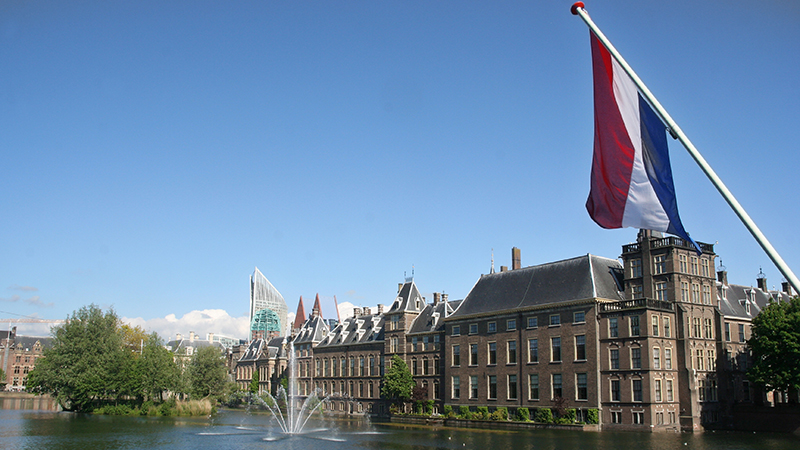
Dutch House of Representatives passes ‘flawed’ conversion therapy Bill
Normally, when new criminal laws are passed you would expect a high level of caution and care – even more so when they involve prison sentences.
But when it came to passing a new conversion therapy law in the Netherlands, the lower house of the Dutch Parliament seems to have thrown all caution to the wind.
Back in February, when the Private Member’s Bill on the subject was first debated by the House of Representatives, we reported that the two parties holding the balance of power indicated their intention to oppose it.
Whilst the Christian Democratic Appeal (CDA) and the New Social Contract (NSC) gave their support for the principle of the Bill, they said it was so poorly defined and drafted that they could not support it. Their position followed a damning report from the Parliament’s legal advisors, the Council of State.
However, in part two of debate on the Bill earlier this month, both parties announced a sudden U-turn. They confirmed they would now vote for the Bill, which criminalises professionals (e.g. church ministers, teachers, medical practitioners) and organisations that carry out “acts with the aim of changing or suppressing… sexual orientation or gender identity”.
So, what changed? Did they discover a silver bullet that addressed all their concerns?
Well, no. CDA representative Derk Boswijk was clear his “concerns” about the law’s “enforceability”, amongst other things, “still remain”.
He went on: “Would we have preferred things to be completely different? Yes. But we also have to deal with the current reality and the fact that the government has fallen.” In other words, the main factor in their changed position appears to be politics, rather than a new-found confidence in the Bill itself.
The NSC expressed a similar position.
A last-minute amendment was also tabled in an attempt to give those changing their minds an additional pretext. It stated that the criminal threshold would only be met if the acts are performed “systematically or otherwise intrusively”.
The amendment was presented as a concession to those worried that pastoral conversations could be caught under the new law. Mr Boswijk (CDA) raised these concerns back in February, referencing legal advice on the Bill from the Council of State, which warned that whilst a single conversation would be okay, “after that there is a real risk that it can become punishable”.
But it is clear that the ‘systematic and intrusive’ threshold does not hold water.
One of the Bill’s supporters Wieke Paulusma (D66) stated that “if an elder visits someone twice a year, that doesn’t fall under the definition of ‘systematic’”. In response to the point, Mr Boswijk asked: “what exactly is the quantity, how many repetitions do you need to do, and what is the intensity? The initiators could certainly make an attempt to clarify this a bit more.”
Some forms of pastoral counselling, such as marriage preparation classes, can happen over a shorter more intense period. If issues of sexuality were brought up several times, could this meet the ‘systematic’ threshold?
Similar concerns were raised around the definition of ‘intrusive’. The only example of an ‘intrusive’ activity provided in the amendment’s explanatory memorandum was the “one-time administration of electric shocks”. But in the debate, the drafters were clear its net is cast much wider. Ms Paulusma (D66) said: “…‘intrusively’ refers to the prolonged, systematic, and continuous repetition that you are not allowed to be who you are, that you are no longer part of the community, that you are rejected, that you are not allowed to be yourself, that the blame might lie with your ancestors.”
Such a definition presents real risks to ordinary church practices. For example, most churches would feel compelled to remove from membership someone found to be having sex outside of marriage – regardless of whether it was with a person of the same sex. As such, they would be considered “no longer part of the [church] community” until they demonstrated repentance for their actions.
These concerns should not simply be swept to one side. But in voting for this law, that is exactly what Dutch politicians have tried to do. And perhaps most concerning is the way that the lower House seems determined to shelter the Bill from any further scrutiny. A move to ask the Council of State to consider the new wording – to see if it satisfies its concerns – was rejected by the House.
The Bill now moves to the Dutch Senate for further consideration. We can only hope it will insist on getting answers to the concerns the lower chamber chose to ignore.
Far from finding a silver bullet, Dutch politicians have chosen simply to place their fingers in their ears and ignore the concerns.
The UK must not do the same. As an independent KC has warned, any attempt to short-circuit scrutiny and to ignore worries that the drafting catches the ordinary work of churches could result in the law being non-compliant with the European Convention on Human Rights.
Standing on the brink of passing such a broad law, the Netherlands could soon find such a legal challenge on its hands. Does the UK really want to join them on this path?
New Irish Govt Programme, same ‘conversion therapy’ promise
2026-01-30 09:42:59The Traitors and the misguided conversion therapy debate
2026-01-23 15:07:47The Traitors and the campaign to ban ‘conversion therapy’
2026-01-16 07:47:52
